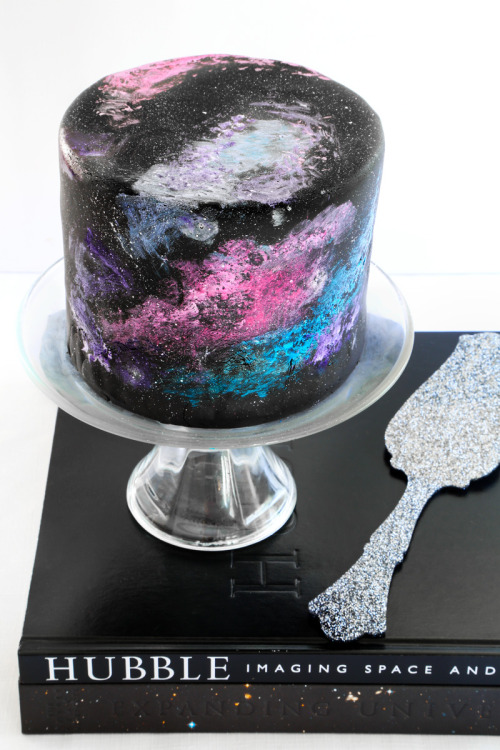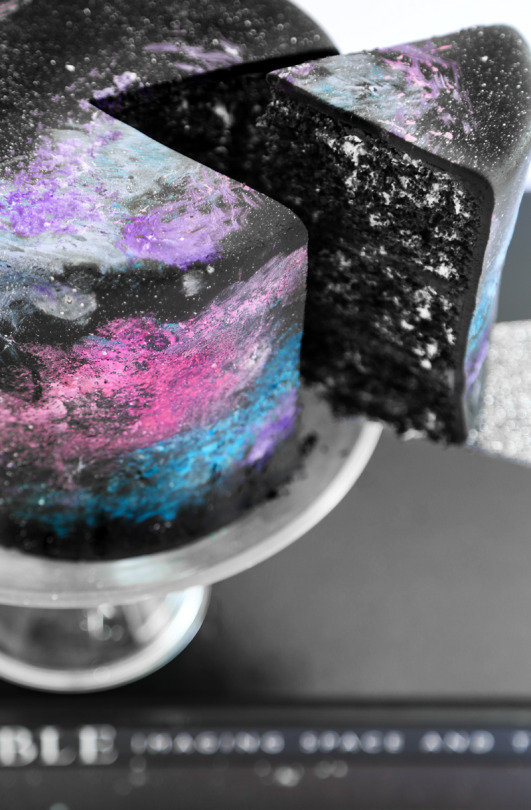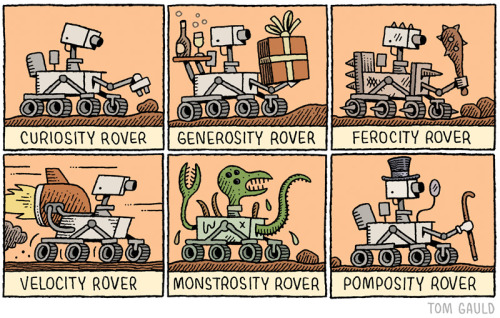Latest Posts by 7w1x-blog - Page 6

Diphylleia grayi - also known as the skeleton flower - is native to eastern Asia and the United States. What is unique about this flower is that its normally white petals turn transparent when touched by rain.

A waterfall of clouds on the Canary Islands.
(Artist)

There is so much humanity has learned from the stars. A few weeks ago I stumbled on a beautiful Navajo creation story that alludes to this.
“When all the stars were ready to be placed in the sky the First Woman said: I will write the laws that are to govern mankind for all time. These laws cannot be written on the water as that is always changing its form, nor can they be written in the sand as the wind would soon erase them, but if they are written in the stars they can be read and remembered forever.” - Navajo creation story quoted in ‘Fire in the Mind: Science, Faith and the Search for Order’ by George Johnson Image: Photographer Jack Fusco recently captured this incredible view of the night sky above the Anza-Borrego Desert in California.


Kinetic sculptures by British artist and physicist Paul Friedlander.

The tusk of a woolly mammoth being unearthed from a Siberian riverbed.



Keith Sonnier, Portals, at Maccarone.
Space Lettuce in the White House Kitchen Garden
While most people plant gardens on Earth, we’re working to cultivate one in space!

On April 5, the First Lady welcomed students from across the country as well as NASA Deputy Administrator Dava Newman and NASA astronaut Cady Coleman to the White House Kitchen Garden.

While there, they planted various produce, including the same variety of lettuce that will be sent to the International Space Station on the April 8 SpaceX cargo launch.

These seeds were prepared and packaged for both the First Lady’s garden, as well as the batch headed up to space station. “Outredgeous” Red Romaine Lettuce and “Tokyo bekana” Chinese Cabbage will soon be growing in both gardens!
Why do we grow plants in space?

Our Veggie plant growth system on the space station provides lighting and nutrient supply for a space garden. It supports a variety of plant species that can be cultivated for educational outreach, fresh food and even recreation for crew members on long-duration missions.
When crews travel farther into space, they will need a self-sustaining life support system, and that means growing their own food.
How do we grow plants in space? Here’s a resource for “Space Gardening 101”.
Want to see the space station seeds launch? You can watch Friday’s SpaceX cargo launch live online starting at 3:30 p.m. EDT, with launch scheduled for 4:43 p.m.
Make sure to follow us on Tumblr for your regular dose of space: http://nasa.tumblr.com


This popular beach located in the Maldives, colloquially known as the Sea of Stars, lights up at night due to the presence of phosphorescent phytoplankton. When stressed or agitated (such as when being stepped on, splashed, or due to crashing waves), the phytoplankton glow like submarine fireflies.
(Artist | Source)

In the Woods

Artist Christina Hutchinson combines the cosmos and Earth in her series of exquisite resin necklaces.
You can check out her Etsy shop here: [x]

World famous theoretical physicist Stephen Hawking and Russian billionaire Yuri Milner announced Tuesday their newest attempt to find extraterrestrial life: a project called Breakthrough Starshot.
“Today we commit to the next great leap in the cosmos,” Hawking told reporters at the top of the World Trade Center in New York City. “Because we are human and our nature is to fly.”
Hawking said the goal of Breakthrough Starshot was to reach Alpha Centauri, the closest star system to us, within a generation by using thousands of tiny spaceships.
Astronomers believe an Earth-like planet could exist within the “habitable zones” of Alpha Centauri, located 25 trillion miles away. It is therefore the most likely place to find life or even, as Hawking said, a possible new home for future humans.
Breakthrough Starshot’s spacecrafts, which they call “nanocrafts,” will be a gram-scale computer chip that will include “cameras, photon thrusters, power supply, navigation and communication equipment,” Avi Loeb, a Harvard scientist involved in the operation told reporters.
A rocket would deliver a “mother ship” carrying a thousand or so of the nanocrafts into space. Once in orbit, the crafts would be propelled with thin sails and hyper-powerful laser beams shot from Earth into the universe to explore and discover. There the crafts would take pictures of their surroundings, which would take around four years to be sent back to earth.
The nanocrafts would travel at around 20% of the speed of light, Loeb said. At that rate it would be possible to reach Alpha Centauri in around 20 years, and the potentially habitable planets within 70. Using the best currently existing technology, it would take some 78,000 years.
Continue Reading.


Paul Villinski.
Love - New Nobility
@newnobility Thank you for your submission! Please follow this artist to show your support!





Atlas of Peculiar Galaxies
Here are some fun and unusual galaxies from the Atlas of Peculiar Galaxies, a catalog produced by Halton Arp. A total of 338 galaxies are presented in the atlas, which was originally published in 1966.
1. IC 883 (Arp 193), remnant of two galaxies’ merger 2. Arp 147, an interacting pair of ring galaxies 3. Giant elliptical galaxy NGC 1316 4. Interacting pair of galaxies: Arp 238 (UGC 8335) 5. Merging galaxy pair named NGC 520 (Arp 157)




UK-based artist Alberto Seveso shares a new collection of his renowned series of underwater ink photographs, titled Heavy Metals.
(Source)

Casa del Mar

Way back in 1977 something amazing happened (apart from the release of Star Wars obviously). Astronomer Jerry Ehman was using the Ohio State University’s Big Ear radio telescope to sweep the sky for possible signals from extraterrestrial civilisations. He found something.
While pointing towards a grouping of stars called Chi Sagittarii on 15 August, he received a powerful blast of radio waves that lasted for 72 seconds. He circled it on the readout and wrote: “Wow!”
Analysis of the signal showed that it displayed all the hallmarks of coming from interstellar space, and it became something of a cause célèbre for those involved in SETI, the search for extraterrestrial intelligence.
The trouble is that despite numerous attempts, the signal has never been observed again and so remains unexplained. Until now perhaps, thanks to the work of Professor Antonio Paris of St Petersburg College, Florida.
Continue Reading.










The Tropical Islands resort, just south of Berlin, Germany, is an old abandoned aircraft hangar that was transformed into an indoor water park. The theme park, which is 66,000 square feet in size, includes several swimming pools, a four-story tall water slide, a tropical lagoon, themed cabins (including modern and adventure-themed rooms), medicinal saunas and steam baths, a mud bath spa, a meditation room, and the largest indoor rain forest in the world. Buildings are created in the styles of several different cultures, including southeast Asian, Spanish, Native American, Brazilian, Cambodian, and Australian Aboriginie.
(Source)
Dance, Electro Funk | Alex Newell & DJ Cassidy - Kill The Lights (Feat. Jess Glynne) (Audien Remix)
Yeeeessss. Audien has been pumping out jams lately and this one is no different. “Kill the Lights” is a catchy, funk-infused jam with that classic Audien synth added for extra umphh. Hit the stream and follow us on soundcloud!











